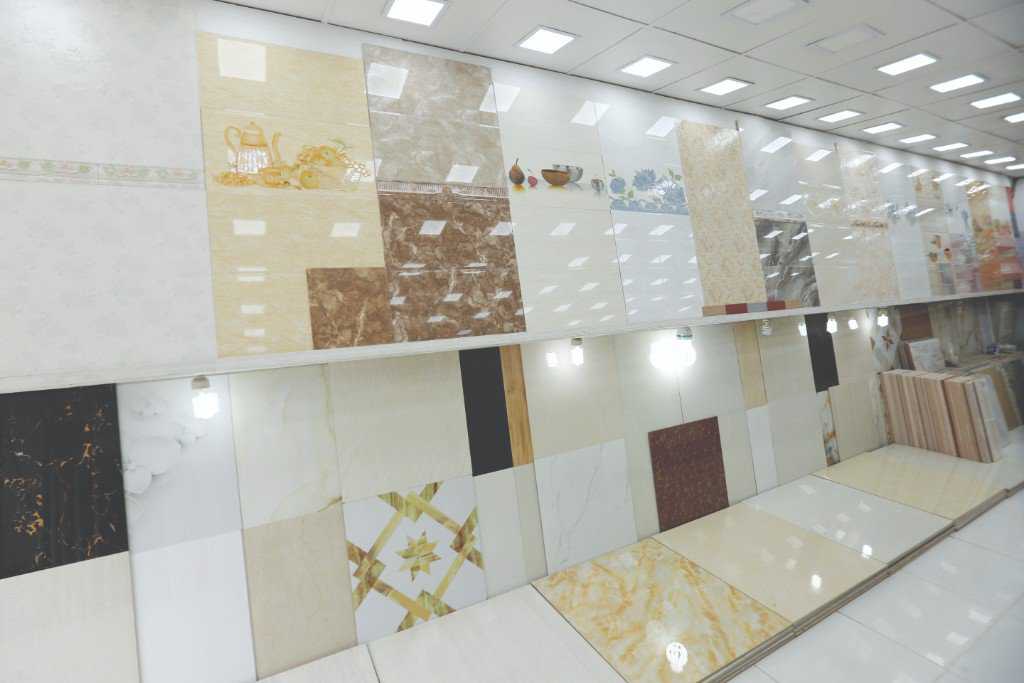Growing demand feeds local tiles industry

Image collected
Only a decade ago, Bangladesh had to depend mostly on imported tiles but now rising domestic demand, triggered by increased construction of houses and their renovation or remodeling, has led to the boom of local tiles industry over the period.
Now, besides the local investors, some foreign investors have come into the scene, leading to further expansion of the market.
According to tiles manufactures, tiles market is expanding by over 200 million square meters yearly, which caters to almost 80% of local demand. If the sector is able to attract even more investment with infrastructural facilities, it will become an exporting target for others in the region.
Bangladesh Ceramic Manufacturers and Exporters Association (BCMEA) President Shirajul Islam Mollah tells Dhaka Tribune that in Bangladesh most of the tiles manufacturers use world class SACMI technology that ensures high quality, cost-effective output and opportunities to manufacture floor and wall tiles of endless and innovative designs.
He mentions that tiles production is totally a gas-based industry and due to gas crisis the production work is being hampered these days.
He calls on the government to ensure supply of gas to this sector on a priority basis.
“We know ceramic products were very promising for the country’s export basket but we are failing to compete in the international market due to higher production costs compared to other countries,” he says.
Talking to different tiles traders in the capital, Dhaka Tribune has come to know that nowadays customers are interested about locally produced tiles compared to the imported ones.
As per industry insiders, the market of imported tiles did not grow much in last five years. The main source of imported tiles is China. A few are shipped from Italy, Spain, India, Indonesia, Malaysia. Thailand, Vietnam and others.
Rejaul Karim, sales executive of New RK Tiles and Sanitary at Hatirpool, says: "Local tiles companies are manufacturing a wide range of import-substitute tiles and the prices are almost same compared to the imported ones."
Another trader Al Haj Abul Bashar at Green Road says: "In my shop more than 70% of tiles collection are those produced locally as they are on high demand."
“Over the years our local companies have developed their expertise and skills to such an extent that customers are now preferring the local products to the imported ones,” he observes.
Liaquat Ali Bhuiyan, vice-president of Real Estate and Housing Association of Bangladesh (REHAB), notes: "Not only in the cities, but also in the semi urban and rural areas, people are using tiles and other sanitary wares to decorate their houses."
Local tiles companies
According to BCMEA data, currently 28 local companies are now producing tiles. Their investment amounts to around Tk5,000 core while about 20,000 people are directly employed here.
These companies are manufacturing tiles as various as glazed and unglazed floor, wall, stair, and a wide variety of finishes, polishing, semi polishing, mat and different types such as normal ceramic, porcelain, vitrified, glaze vitrified, homogeneous, rustic slim, cladding terracotta etc.
In recent years, some plants were set to produce granite tiles of various finishing and sizes for multiple building and furnishing uses and furniture tops.
Data show that in 2017-18 fiscal year the yearly turnover of this sector was Tk3,143 crore and the total domestic market consumption of tiles products was Tk4,126 core, which occupied 76.18% of the total market share, leaving the rest 23.82% to imported products.
In the local markets, RAK ceramics and Star ceramics have taken the lead as both have 15% share in the total tiles market. Besides, Great Wall Ceramic, Akij and Mir Ceramic have 14%, 11%, and 8% market share.
X Ceramics, Sun Power Ceramics, South East Union Ceramics, Sanita Ceramics, Monalisa Ceramics, DBL Ceramics, Fu-wang Ceramics also have their share in the local tiles market.
Challenges
BCMEA General Secretary Irfan Uddin says: "Currently, tableware and sanitary ware of ceramics are not considered as luxury products but tiles are still considered as luxury items and so the tiles manufacturers have to pay 15% supplementary duty and 15% VAT."
"The local market of tiles will expand further if these duties are withdrawn," he says.
Source: https://www.dhakatribune.com
Previous Story
- Bangladesh Leather Industry Slump Continues
- IFC presents business case for wage digitisation in...
- Anti-dumping duty imposed on jute sacking cloths from...
- Investment Industry
- Jessore light engineering sector growing with exports to...
- A new industry in Ethiopia is creating jobs....
- Bangladesh Automobile Market Competitive Research And Precise Outlook...
- Global Bangladesh Market 2019 Bangladesh Petroleum Corporation, Petrobangla